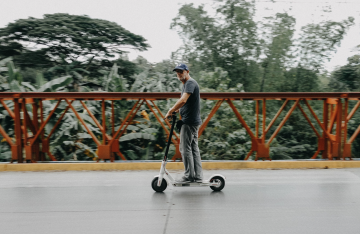Do you sometimes feel like giving up? Does it feel like there’s no reason to keep going? According to the 2012 data from the National Health Interview Survey, about 10% of US adults (or 1 in 10 people) feel chronic sadness. An estimated 6.1% of adults experience “hopelessness” while 5% experience “worthlessness.”
Sadness is a normal human emotion but the lack of hope and the lack of feeling worthwhile are definitely terrible emotions to have. Such negative emotions are often connected to clinical illnesses, and are typical characteristics of melancholic depression.
Individuals who deal with these emotions often are those who often have these lines running through their mind:
- Why bother?
- I will never be happy.
- I’m not worthy.
- My life will never get better.
- Nothing will work out.
- I’m too ugly. (or fat…or old).
- I’m probably cursed.
- No one likes me.
And so, because you feel this way, you don’t want to see other people. You keep yourself isolated; you don’t bother to eat healthy or to exercise. You don’t do anything fun or exciting. And all these things only worsen your feelings of hopelessness.
The good news is, there are things you can do to change the way your life is going before you spiral down into a world of complete sadness and negativity. Here are some tips you can try:
-
Question your feelings of hopelessness/worthlessness.
If you’re hopeless, you may often tell yourself that anything you do is just a waste of time. And so you don’t do anything, and it becomes a self-fulfilling prophecy. Psychologists in Montreal often advise their patients to question their hopelessness. Try to entertain the idea that you could be wrong. And then, once you have that inkling of doubt, start to act against your hopelessness such as doing something that you kept telling yourself not to do. And then see with your own eyes that by doing it, you actually feel better.
-
Try something. Keep trying.
Many people who feel worthless and hopeless would say that they’ve tried everything to improve their situation. They may have tried medication, change their behavior, or seek therapy but the truth is, no one has tried everything. There are different forms and techniques used in therapy, and even a change of behavior involves many ways of doing and thinking.
-
Focus on things you can change.
The feeling of hopelessness becomes aggravated if you focus on situations that you can’t do anything about. Focus instead on what you can change. If your relationship isn’t working out no matter what you do, then stop forcing it.
-
Appreciate the present.
Stop worrying about the future and don’t dwell on the past. Focus on the present. Keep your mind on the “now” – your breath, your surroundings, the sounds that you hear… If you can see that life keeps going no matter how terribly you feel, you will realize the significance of your own life and that you don’t really feel so hopeless after all.
-
Reach out to others.
When you feel extremely sad and alone, it gets worse because you tend to isolate yourself from others. There are a lot of people who care about you and you only have to reach out to them.
The beauty of talking to other people is that you’re able to let out your pain. Instead of bottling it all up inside you, you can tell others about it and doing this will already help you feel better. Besides, when you know you can open up to others, you will also remind yourself that you are not alone in your difficulties.



